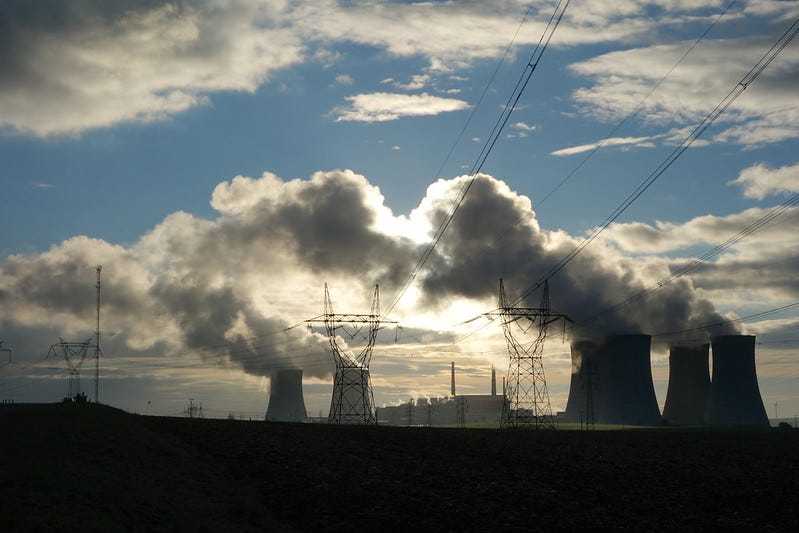Being climate friendly and nuclear: Europe's uneasy decision.
To reach its emissions goals by 2050, Europe might need to embrace atomic energy. At least, some of the EU members see it that way.

(Stephen Rae is the former Group Chief Editor of INM, Ireland’s largest online and print media group. He serves on the board of the World Association of News Publishers (WAN-IFRA) and was previously on the board of the World Editors Forum. He was appointed by the European Commission to its High Level Expert Group on Online Disinformation.)
DUBLIN (Callaway Climate Insights) — Sometimes, you’re forced to do a deal with the devil, they say.
I wonder if that’s how European Climate Commissioner Frans Timmermans felt this week on a webinar with the head of the International Energy Association (IEA).
Asked directly by IEA Executive Director Fatih Birol about his views on nuclear power, Timmermans responded: “If you come to the conclusion that this is your best option, the Commission will certainly not stand in your way.”
Much of Europe is vehemently opposed to nuclear power — and the Green Party, which has seen a surge across the continent, is in the vanguard against atomic energy.
German Chancellor Angela Merkel announced the orderly wind-down of her country’s nuclear power plants in the wake of the Fukushima disaster in Japan back in 2011.
In Timmermans’ native Holland there is only a single power plant, the Borssele installation, producing just 4% of total electricity generation.
But if the climate commissioner is to achieve his goal of closing coal-powered electricity and concrete plants in eastern Europe to reach climate neutrality by 2050, he will be forced to embrace U.S. atomic energy.
Poland and the Czech Republic have told the commission the only way they can replace coal is with nuclear — and with American know-how to boot.
The U.S. this week even announced that Poland has signaled it will spend $18 billion on nuclear technology from American companies. The Czech Republic, meanwhile, decreed it “has no other choice than nuclear energy,” and wants Brussels to help pave the way for a proposed plant in Dukovany.
For his part, it’s clear Timmermans would prefer if both nations replaced coal with solar and wind. He asked them to weigh the cost of nuclear against the huge strides being made in the renewable sector, appealing for them to make the decision “in a completely rational way.”
“Do the numbers and then draw your conclusion, that’s my only plea,” he urged. “Because if you commit to new nuclear, be aware of the massive, massive levels of investment you will need, and be aware of the [life-cycle] cost,” he said. Choosing nuclear “means that you will be stuck with it for a long, long, long time.”
Cost, however, is far from being only the issue in the equation.
Poland and Czech are not like their most westerly neighbors, who have cooled towards the (Trump) U.S. In fact, both eastern countries enthusiastically embrace the Atlantic alliance and maintaining the U.S. link is visceral. It’s effectively an anti-Russia stance. It’s a way of saying “back off” to Russia — but also to the commission which has been twisting their arm over replacing coal.
Not only that, Poland will be looking to the European Commission to help support its new plant due in 2033 and which will have 6 to 9 gigawatts of nuclear energy capacity. Poland says it is “impossible these days to build a nuclear power plant without state support.”
Therefore, both Poland and Czech will look to Timmermans to not use Commission rules to block state aid for the American-technology based plants.
You can sense the commission knows it is powerless to act here and even Timmermans himself did concede “the huge advantage of nuclear power, of course, is that it’s emissions-free.”
Brussels would much prefer renewables replace coal — but when it comes to the choice of Member States, it has to abide by its mantra of being “technology neutral” as long as it’s emissions-free.
Being climate friendly and nuclear. It doesn’t feel right, right?

